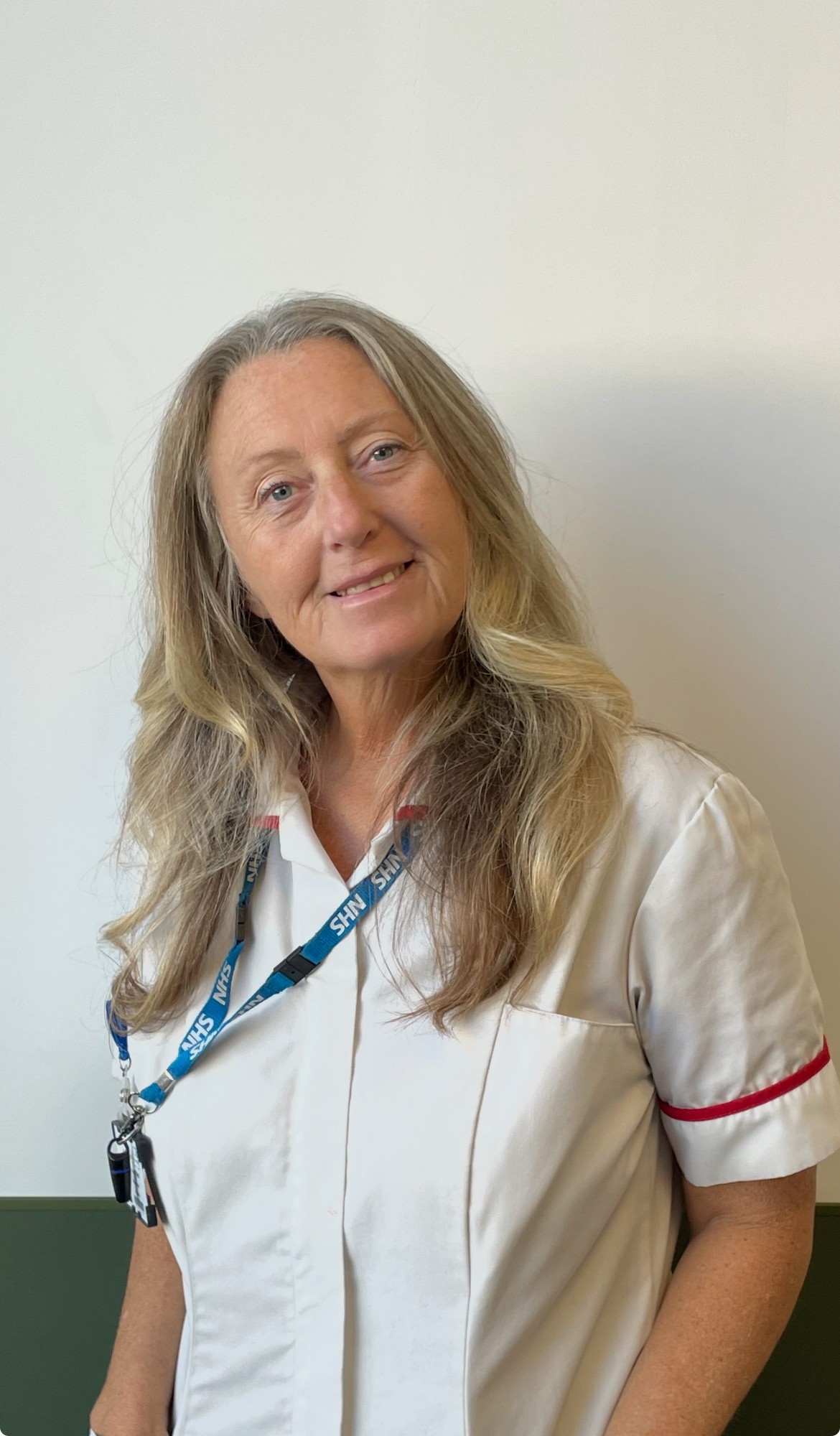
Lisa-Jayne is determined to give back to the NHS after life-saving treatment
To her patients, Lisa-Jayne Ward is a friendly and professional phlebotomist, excellent at putting them at ease and painlessly taking their blood.
Few have any idea that one of the reasons she is so good at reassuring people is because she knows exactly what it is like to sit in that chair and know the results of a blood test could change your life.
Lisa-Jayne, from Deal, was diagnosed with aplastic anaemia, a serious bone marrow disorder, aged just 17. She had no symptoms, and it was only discovered after she stepped forward to donate blood to help victims of the Clapham Junction rail crash in 1988, which left 35 dead and hundreds injured.
Lisa-Jayne said: “I worked for British Rail at the time and they were laying on taxis to take people to St George’s Hospital, where they had set up temporary blood donation hubs.
“I went over but when I had the finger prick test they said I couldn’t donate.
“The next day, a woman from the hospital was frantically trying to get hold of me – she got through to my friend in the call centre who suggested calling my mum’s number, as she worked downstairs.
“I happened to be standing next to her desk when the call came in and they wanted me to get to hospital immediately.”
That night, Lisa-Jayne received five pints of blood, and doctors initially feared she had leukaemia.
But after a bone marrow biopsy she was instead told it was aplastic anaemia, a condition affecting only two in a million people.
Lisa-Jayne needed a bone marrow transplant, but none of her siblings was a match. Charities DKMS and Anthony Nolan trawled their registers of potential donors but there was no one suitable.
Doctors tried a range of treatments before offering her the chance to take part in a trial of a new drug from Switzerland. But she would not know for a year whether she had the trial drug or a placebo.
Lisa-Jayne, now 54, said: “I knew that it would benefit other patients in the future, even if it didn’t help me, so I was in.
“But luckily I did receive the trial drug and it helped keep me alive.”
The treatment regime was tough, but it was the blood tests that proved most challenging for Lisa-Jayne.
She said: “It was always one of the biggest anxieties throughout the treatment, which was pretty horrific.
“There was one lady in St Georges, I can still remember her name. She made taking my blood look so easy, and I always thought it was so cool that she could feel my arm and find my vein.
“I was determined to see how I could pay it back.”
Lisa-Jayne’s career was in the travel industry, but when Covid hit it forced a rethink and she began looking at jobs in the NHS. After seeing an advertisement for a phlebotomist she decided to apply, and now works at Buckland and the William Harvey Hospital in Ashford.
She said: “We bleed more than 50 people a day each, and we talk to each and every one.
“It is so interesting to find out about their stories. It is never just about the blood test, once it is done painlessly you will find they tell you what they are really worried about.
“I know what it is to sit in that chair and fear bad news, or to wonder how you will tell your family.
“Part of me wishes I had started this job earlier, but when I was younger I was so tied to hospitals and it wasn’t my choice so it wasn’t the right time.”
Lisa-Jayne is also passionate about encouraging people to sign up as stem cell donors, to help give others the best chance of a match.
Together with her daughter Kerys she has organised donor registration events at the William Harvey and Queen Elizabeth The Queen Mother Hospitals, and dozens of people have joined the register.
She said: “It is so much easier to donate stem cells now; for most people it is just like giving blood.
“I still wish I had the opportunity for a bone marrow transplant; as my outcome would have been better.
“But those were the cards I was dealt and I feel very lucky to have been able to bounce along all these years.
“I still have a blood test every six months as it could come back as aplastic anaemia or acute leukaemia but I can’t think about that – instead I want to do all I can to help others in whichever way I can.”
For more information or to join the blood stem cell register, visit https://www.dkms.org.uk/